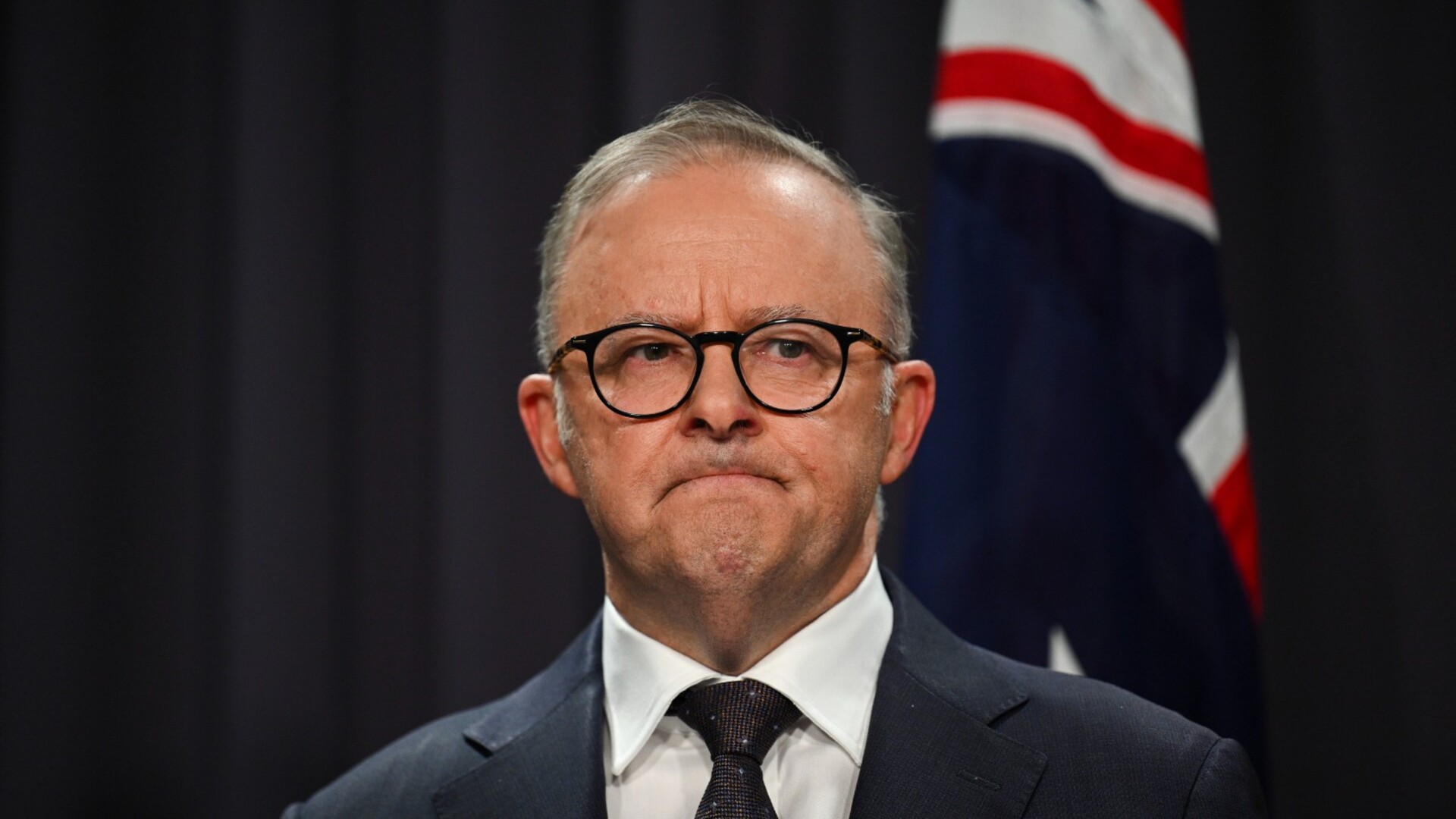
I’m quickly coming to the conclusion that election campaigns should be as short as possible.
I know there are constitutional limitations on this, but the longer this campaign goes the more expensive it becomes for taxpayers and the more irresponsible – nay lunatic – the policy proposals.
Let’s not forget the backdrop to this. The pre-election fiscal and economic outlook is predicting a decade of budget deficits, with government debt about to hit more than $1 trillion next financial year.
Leaving aside the Covid period, we have the biggest-spending government in history. (Labor might want to point to the Covid period, but bear in mind Labor was fully on board with the targeted spending and, indeed, wanted more.)
This financial year, government spending will increase by close to 6 per cent, with government payments as a percentage of GDP reaching 26.5 per cent.
Next year, the percentage will reach at least 27.2 per cent, a figure that doesn’t fully account for all the new spending coming out of the campaign.
No accountability
Now in normal circumstances, you might expect both the government and the opposition to be proposing ways of reducing government spending, of getting the budget back into balance and to start to pay down the government debt.
At the least, we might expect new spending proposals to be accompanied by an explanation of how they will be funded.
But politics has now descended into a melange of Father Christmas and the Easter Bunny. Generosity, handouts, gifts all around – these are the driving forces of this election campaign. Handing out other people’s money – I’m looking at taxpayers here – is seemingly as addictive as crack cocaine. It’s akin to two desperate suitors keen to win the fair maiden’s hand making increasingly ridiculous and unattainable promises.
Take some of the Coalition’s announcements during the weekend.
Evidently, the temporary cut to the fuel excise rate was not enough. Now everyone earning less than $144,000 per year – that’s about 85 per cent of workers – will receive a one-off income tax rebate of up $1200 at the end of 2025-26.
The cost to the budget is estimated to be $10bn.

Where’s the reform?
There’s no real reason for doing this apart from winning votes. There is no element of tax reform to the proposal. And higher-income earners continue to be hit through our relatively high marginal tax rate (45 per cent plus 2 per cent Medicare levy) and ongoing bracket creep. Evidently, the reform elements of the three stages of income tax changes that were initiated under the Turnbull/Morrison government have been completely forgotten.
Then there’s this loopy idea of making the interest payments on mortgages tax-deductible for first-home buyers subject to certain conditions, including a five-year limit.
To be sure, interest payments on mortgages are tax-deductible in the US, but the arrangements there are unique, including the availability of 30-year fixed interest loans, for example. It’s not as though these arrangements don’t have problems. Homeowners are inclined to hold very large mortgages on an ongoing basis, which makes them vulnerable in the event of a severe downturn such as the global financial crisis.
The Coalition’s policy is to confine the subsidy to those first-home buyers purchasing new homes but with relatively generous income limits – $175,000 for singles and $250,000 for couples. This will cover most first-home buyers. The cost of mortgages up to $650,000 will be deductible, generating an average benefit of $11,000 per year for the homeowner, or $55,000 over the full five years.
Nasty shock
Of course, the end of the five years will generate a very nasty shock for homeowners who take up this benefit – they will have to cover the mortgage using after-tax income and so the net loss of income will be even greater than $11,000. It’s hard to see how this can work politically.
But when it comes to bad housing policy ideas, Labor is giving the Coalition a run for its money.
Notwithstanding the government’s abject failure to accelerate the rate of growth of new housing, we are now expected to believe that by spending $10bn, around 100,000 new homes will become available for first-home owners over a period of eight years.
And here’s the howler: according to Housing Minister Clare O’Neil, government-funded houses will be cheaper than privately funded ones.

Expect the unexpected
How this could possibly work is totally unclear. Presumably, O’Neil is not anticipating the government setting up some massive Department of Works. So government-funded purchases will be working in the same markets as privately funded ones, with identical problems of labour shortages, the cost of material and inadequate housing-related infrastructure.
As for extending the scheme whereby first-home buyers can purchase a home with only a 5 per cent deposit and be relieved of purchasing lender’s mortgage insurance – average cost is around $25,000 – the pitfalls are numerous.
How does the government book this sort of program? What happens if a homeowner defaults on the repayments? Do the lenders come after the government for any shortfalls? Don’t overlook here the fact that defaults are likely to all come at the same time, which could involve a very substantial call on government funds.
At a more general level, is such a large-scale demand-side intervention really a good option at this point of time?
The fact is that the government established a five-year target of 1.2 million new homes to be achieved by mid-2029.
No one who understands the industry thinks this target can be reached on current settings. The current run-rate is inconsistent with this happening. Note also here that homes are not just detached houses; it covers tiny apartments in shoddily constructed high-rise towers.
The sooner May 3 arrives the better, because at least then the politicians will have run out of time to dream up hare-brained expensive proposals.







